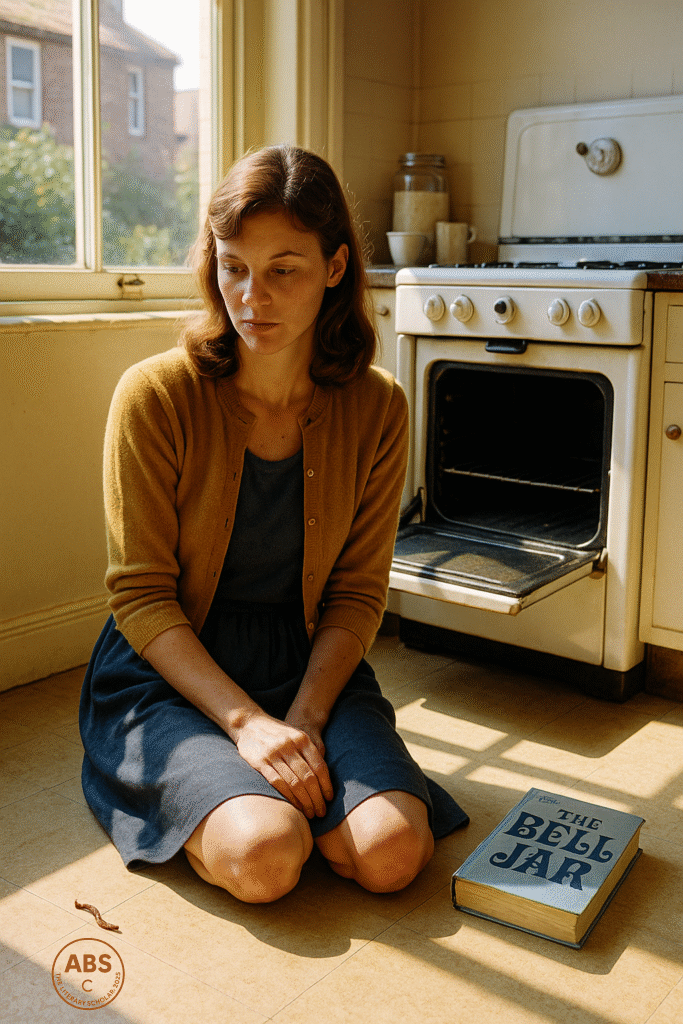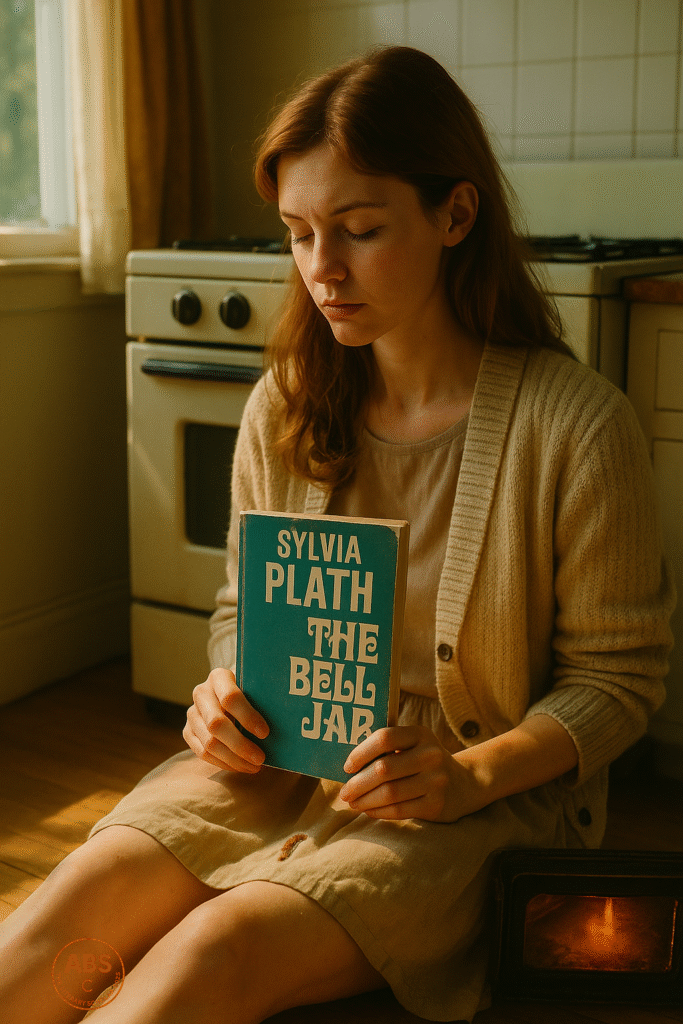Or, The Woman Who Handed Her Pain a Pen and Said, “Make It Beautiful”
By ABS, the Literary Scholar, who believes Sylvia Plath didn’t just write confessions—she carved them in fire, turned her psyche into poetry, and taught the world that even a bell jar can echo.
Sylvia Plath didn’t write poems. She detonated them. Her lines didn’t arrive quietly—they broke the surface like screams that had been holding their breath for centuries. If poetry had a Richter scale, Plath would sit firmly at “emotionally volcanic.”
Born in 1932 in Massachusetts, she began writing early and intensely, which is a polite way of saying: most people write poems about daffodils at age 8—Plath wrote about existential dread with rhyme schemes. While others dipped their toes in metaphor, Plath cannonballed into her subconscious and took you with her—whether you were ready or not.
She studied at Smith. She went to Cambridge. She married fellow poet Ted Hughes, a man as emotionally available as a thundercloud. Together, they made two children, a tempestuous marriage, and a shared legacy soaked in brilliance, betrayal, and unbearable beauty. Theirs was less a literary romance, more a Greek tragedy dressed in tweed.
Now let’s talk work—because Plath was not just “the woman who died young.” She was a force of creative nature who wrote with surgical rage and icy elegance. Her lines could slice, sear, or stare you down. They were never gentle. Not even the floral ones.
The Bell Jar, her only novel, reads like a coming-of-age tale written by someone falling down a well with perfect grammar. It’s a story of a brilliant young woman named Esther Greenwood who has everything going for her—on paper—but who slowly suffocates under the pressure of perfection, patriarchy, and a mind that won’t stop unravelling.
It’s not just about mental illness. It’s about living inside a world that gaslights your sanity while handing you lipstick samples.
By the end, you don’t know whether to sob or underline everything twice.
And then—the poems.
My God, the poems.
In “Lady Lazarus,” she rises from the ashes of her own despair, taunting the world like a poetic phoenix with a vengeance kink:
“Dying / Is an art, like everything else. / I do it exceptionally well.”
It’s not confession. It’s performance art with a razor blade and eyeliner.
The speaker doesn’t just survive—she dares you to watch.
In “Daddy,” she unloads decades of anger, abandonment, and emotional inheritance with such fury that Freud himself would have excused himself for a drink.
“Daddy, I have had to kill you. / You died before I had time—”
It’s part elegy, part exorcism, part poetic scream therapy.
She uses Holocaust imagery, fairy tale motifs, nursery rhyme rhythm, and somehow makes it feel like both a personal breakdown and a feminist manifesto.
Ariel, the posthumously published collection that made her immortal, contains poems that weren’t just written—they were released.
These are poems that gallop, twist, confess, and burn.
Nature is not passive. It’s wild.
Femininity is not soft. It’s sharpened.
Death is not a threat. It’s a presence.
And words are not just words. They’re weapons in lipstick and lowercase.
Her style? Ruthlessly tight. Emotionally soaked. Rhyme that lands like thunderclaps. Her poems don’t say—they surge. They aren’t about understanding. They’re about feeling too much and too fast and then wondering if anyone else felt it too.
And yet—for all her dark brilliance—she also saw beauty with painful clarity. Plath could find metaphysical weight in tulips, moons, figs, and morning dew. She understood the terrifying balance between what is tender and what is temporary.
She died in 1963 at the age of 30—found with her head in an oven, her children asleep in the next room. It is a detail that literature cannot shake, and one that critics can’t help but turn into myth. But she was not just her death.
She was a wife, a mother, a genius, a woman suffocated by the time she lived in—and still, somehow, she gave us language powerful enough to outlive the silence she left behind.
ABS, The Literary Scholar, after reading Ariel beneath a gray sky and holding their breath through Tulips, stood up slowly, eyes damp but spine stiff, and whispered:
“She didn’t romanticize pain.
She just refused to let it speak without rhythm.”
Then, passing a reader who muttered “She’s too dark,” ABS paused, turned gently, and replied:
“She wasn’t too dark.
She just lit a match where others refused to look.”


Signed,
ABS
The Literary Scholar
Who now measures poetry by how long it echoes after the page ends—and hears Sylvia Plath still whispering.
Share this post / Spread the witty word / Let the echo wander / Bookmark the brilliance
